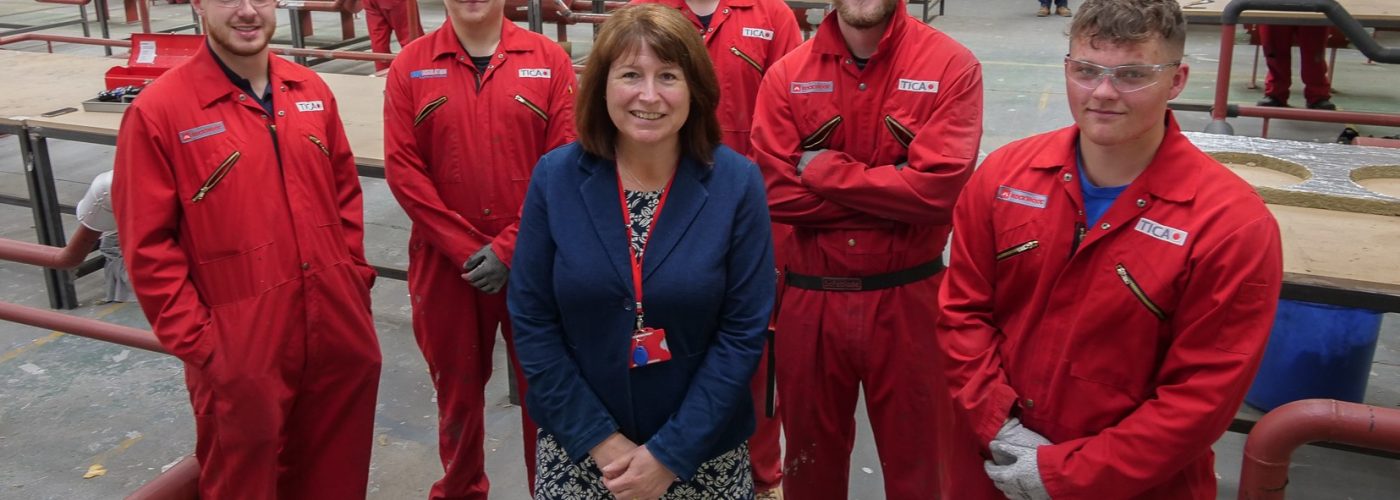The Thermal Insulation Contractors Association (TICA) is on track to train a record number of apprentices this year.
It would normally expect to enrol between 60 and 80 a year but the 2022 figure already stands at around 130.
Demand from employers for skilled apprentices is being fuelled by an ongoing boom in construction projects, combined with a post-Brexit exodus of EU workers.
The sector has traditionally relied on recruiting self-employed contractors, many of whom hailed from eastern Europe, as a cost-effective and flexible way of bridging the skills gap.
Due to the increased demand from within the sector, TICA launched an additional January intake for its Thermal Insulation Apprenticeships, which attracted 31 people, and is on track to recruit more than 100 apprentices to the September intake at its National Training Centre in Darlington.
The only trade association representing the thermal insulation industry, it is also the sole provider of the industry’s Level 2 and Level 3 apprenticeship standards.
These involve a mix of on the job training, supported by classroom and workshop-based learning, allowing apprentices to gain the technical knowledge and practical experience to gain a nationally recognised qualification relevant to the thermal insulation industry.
Marion Marsland, chief executive of TICA, said: “There is currently a dearth in independent insulation contractors due to a combination of Brexit and the pandemic – which has created a general shortage of qualified thermal insulation engineers.
“The industry has always trained apprentices, but never on a sufficient scale and there has been a self-fulfilling reliance on agency contractors working a day rate.
“Many companies in the UK now recognise the benefits of retaining the skills and knowledge by employing people directly. Recent events do seem to be changing the industry’s mindset away from the self-employed model.”
TICA also provides its members with a full apprentice recruitment service, writing and placing apprenticeship vacancy adverts, providing an initial sift of applicants, and arranging interviews.





